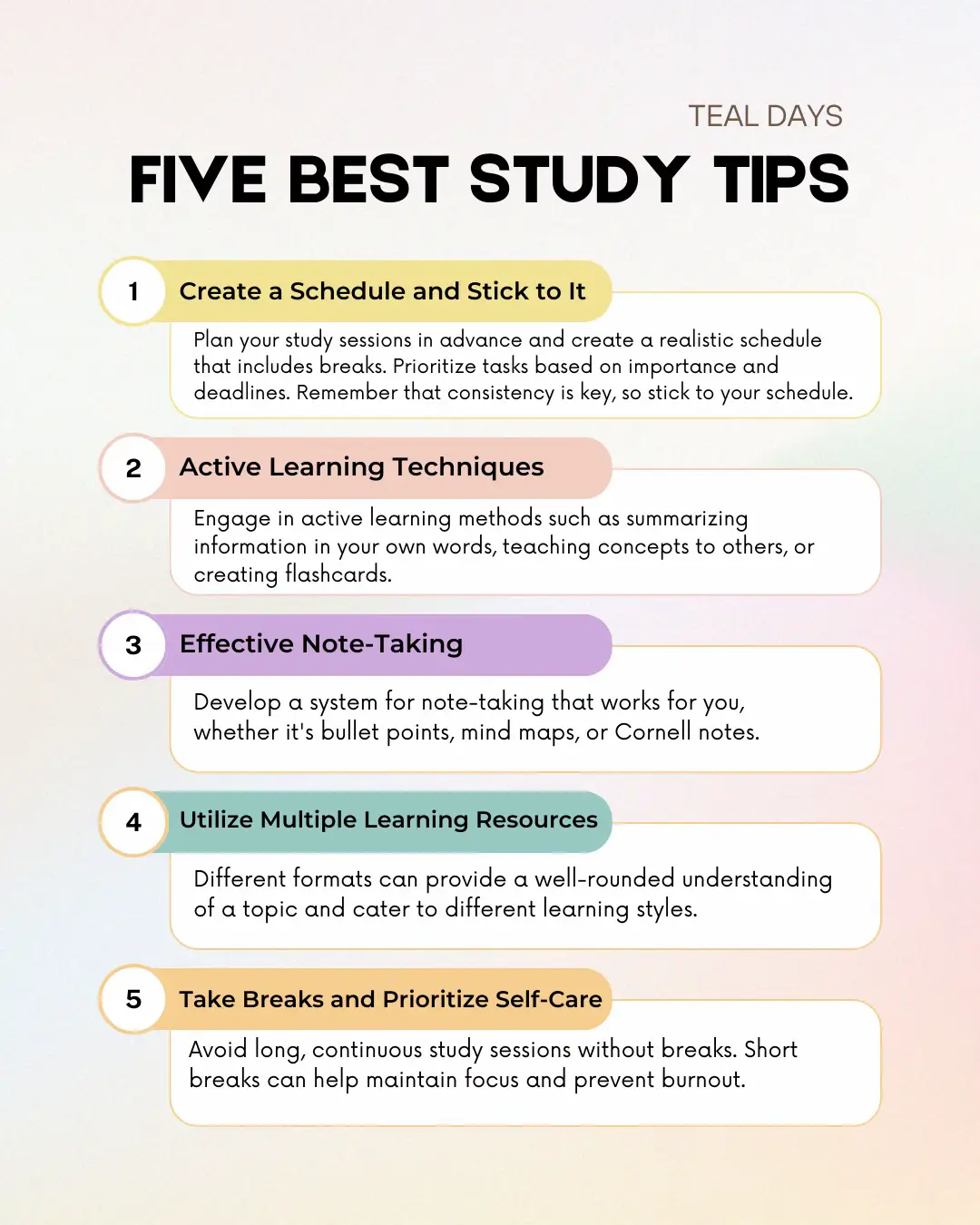The Bernard Rodriguez Journal
Exploring the latest trends and stories in news and lifestyle.
Cramming is for Amateurs: Real Study Hacks to Ace Your Exams
Unlock your full potential! Discover proven study hacks that beat cramming and help you ace your exams like a pro.
Top 10 Study Techniques to Boost Your Exam Performance
Studying efficiently can significantly enhance your exam performance, and implementing effective study techniques is key. Here are some of the top techniques to consider:
- Active Recall: Test yourself on the material instead of passively reading. This approach helps to reinforce memory retention.
- Spaced Repetition: Space out your study sessions over time. This method helps combat the forgetting curve and solidifies your knowledge.
- Pomodoro Technique: Break your study time into intervals, usually 25 minutes of focused study followed by a 5-minute break. This technique can improve concentration and combat fatigue.
- Mind Mapping: Visualize information through diagrams and maps that connect ideas, making it easier to understand and remember complex topics.
- Past Exam Papers: Practice with real exams to familiarize yourself with the format and types of questions that may appear. This approach can boost your confidence and improve time management during the actual exam.
In addition to the above techniques, effective note-taking can also enhance your studying efficiency. The Harvard Business Review suggests that organizing your notes in a structured format can aid comprehension and retention. Don't forget to utilize digital tools such as flashcards and study apps to make your revision more interactive. Moreover, staying healthy is crucial; ensure you get adequate sleep, maintain a balanced diet, and incorporate physical activity into your routine which has been shown to positively affect cognitive functions. Embrace these top 10 study techniques, and watch your exam performance soar!

How to Create a Personalized Study Schedule That Works
Creating a personalized study schedule that works effectively for you requires an understanding of your unique learning style and academic goals. Start by assessing when and how you study best. Are you a morning person or do you find yourself more productive in the evening? Once you pinpoint your optimal study times, consider breaking larger subjects into smaller, manageable tasks. This approach not only helps in preventing overwhelming feelings but also allows for a balance between study sessions and breaks. Aim to incorporate techniques like the Pomodoro Technique, where you study for 25 minutes and then take a 5-minute break, to maintain focus and reduce burnout. For more tips on effective studying, you can read this blog.
Next, integrate your study schedule with other commitments to ensure a harmonious balance between study and personal life. Use a digital calendar or a planner to visually map out your study sessions and deadlines. Ensure to include regular review sessions, as this reinforces what you've learned. You can prioritize tasks by importance and deadline, which can be done through simple methods like creating a study matrix or utilizing Gantt charts for more complex schedules. For additional resources on creating an effective study plan, refer to this article.
The Science Behind Effective Study Habits: What You Need to Know
Understanding the science behind effective study habits can dramatically improve your learning efficiency and retention. According to research published by the Journal of Educational Psychology, students who employ active learning techniques, such as summarizing information and teaching concepts to others, often outperform their peers who rely solely on passive reading and memorization. Key principles of effective study include:
- Spaced Repetition: Revisiting information at intervals enhances long-term retention.
- Active Recall: Testing yourself frequently on the material strengthens memory retrieval.
- Distributed Practice: Spreading out study sessions over time is more effective than cramming.
Another critical aspect to consider is the environment in which you study. Studies indicate that a distraction-free environment significantly boosts concentration and productivity. This includes minimizing digital distractions, such as social media and notifications from your devices. Additionally, maintaining a consistent study schedule helps train your brain to be in 'study mode' during specific times, making it easier to focus. Remember, the goal is to create a personalized study plan that aligns with your learning style while incorporating these effective study habits for optimal outcomes.